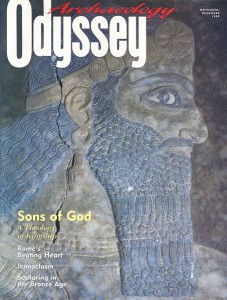
The impact of Mesopotamian religious thought on the evolution of other ancient religious and philosophical thought has never been seriously investigated. What follows are my initial forays into this uncharted territory. I suspect the influence has been far greater than anyone has yet suggested.
Take, for example, one small datum: There was a commandment to refrain from work and travel on every seventh day of each month (plus the 19th day). Whether this had any effect on the Israelite commandment to refrain from work and travel on the seventh day, I do not know. It may be simply coincidence. Or there may be some relationship between these prohibitions.
A more substantial matter is the Mesopotamian sense of the king as the son of God. As we shall see, some of the similarities to later religious concepts are rather striking.
In the popular imagination Assyrian kings have long been portrayed as despots of the worst possible kind, spending their time—when not engaging in war or other cruelties—in their harems, immersed in bodily pleasures and revelries. Consider Eugène Delacroix’s famous painting The Death of Sardanapalus: Here, an atmosphere of depraved luxury is suggested in the disgusting portrait of this last great Assyrian king (late seventh century B.C.) as described in ancient Greek histories.
Already a library member? Log in here.
Institution user? Log in with your IP address.

